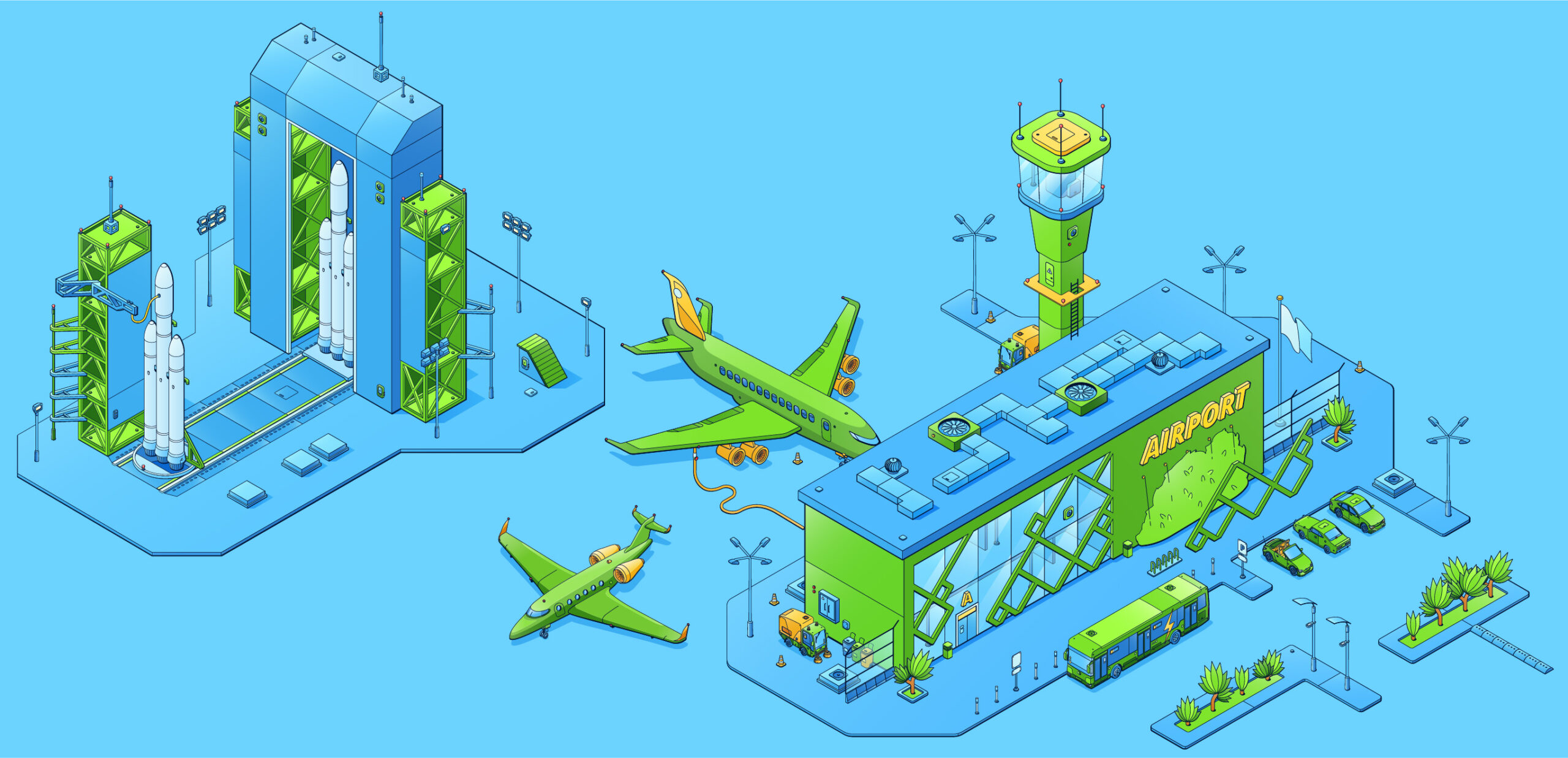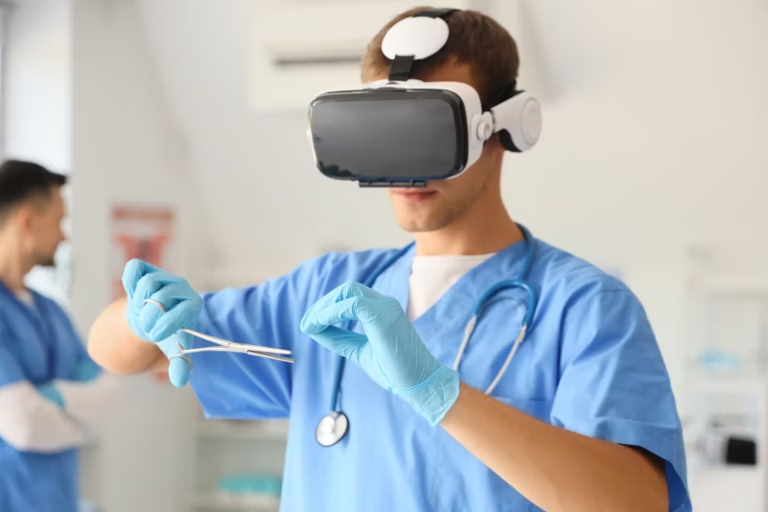Aerospace
Reach for the Sky: Explore Careers in Aerospace
Discover the Greater Whitsunday Aerospace Industry
Aerospace is where innovation takes flight — from designing and building aircraft and spacecraft to operating and supporting the systems that keep them flying. Whether you’re on the ground or in the air, this industry connects people, moves goods, and drives exploration.
The Greater Whitsunday region is emerging as a key hub in Australia’s aerospace and aviation landscape, anchored by the Bowen Orbital Spaceport — Australia’s first privately owned orbital launch site. Now fully constructed and preparing for its first rocket launch, the $15 million facility is part of a $500 million regional industry[1] and is expected to create over 500 jobs in construction, engineering, and launch operations.[2]
With strengths in drone technology, defence ties, regional airports, and flight training, the Greater Whitsunday aerospace industry is soaring with opportunity for problem-solvers, creatives, and tech-savvy minds.
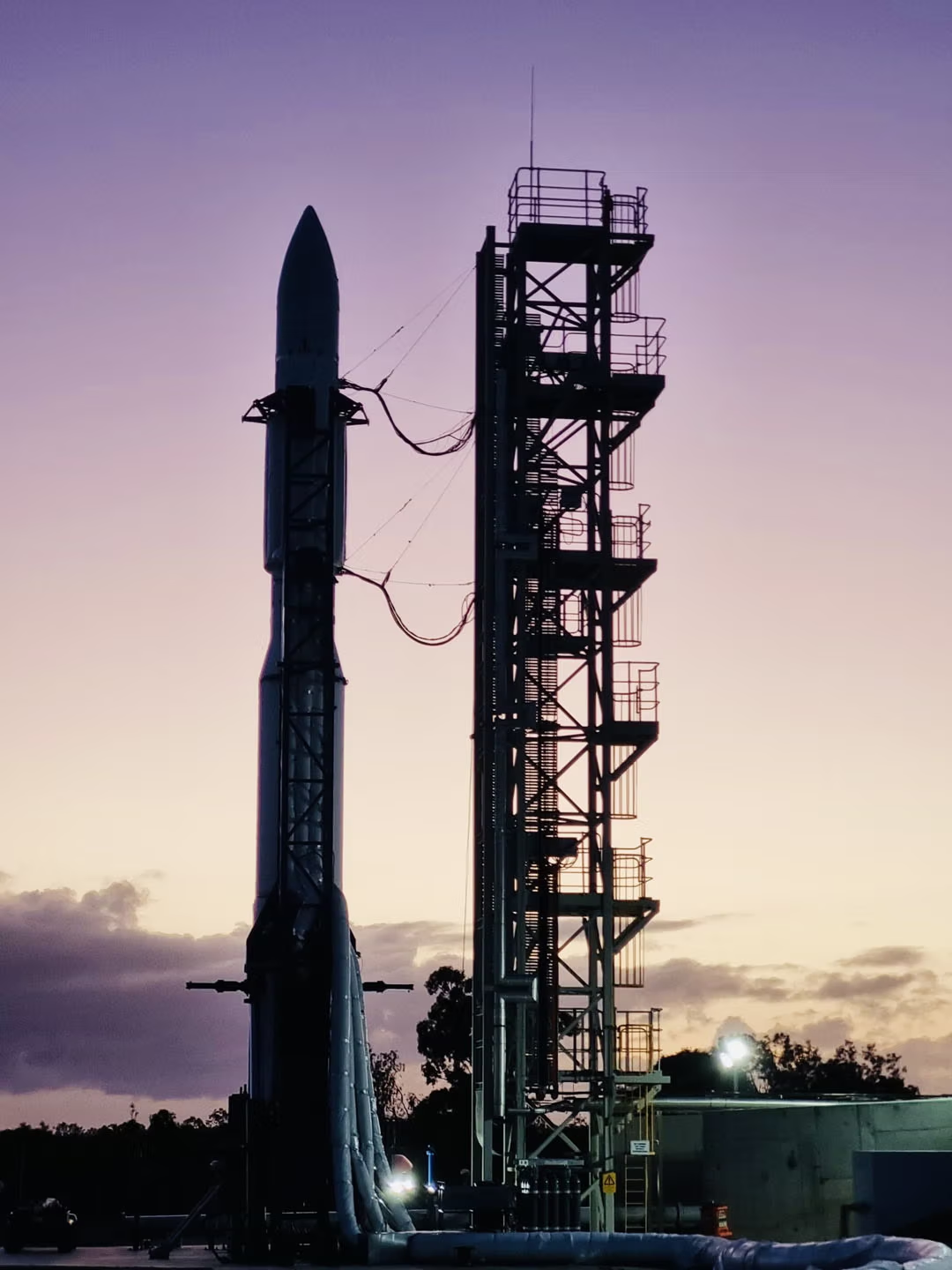
Why Consider a Career in Aerospace?
-
Innovation at Your Fingertips
Be part of an industry pushing the limits of what’s possible. Whether it’s new materials, advanced robotics, or AI-powered navigation, aerospace careers put you at the forefront of technologies transforming transport, defence, and space exploration.
-
Pathways for All Interests
Whether you’re into mechanics, technology, logistics, or teamwork, aerospace offers a wide range of careers. From piloting and drone operation to aircraft maintenance, avionics, flight coordination, and engineering — there’s a role to match your strengths and interests.
-
Careers that are Taking Off
As aviation evolves, new roles are emerging in drone tech, aerospace design, and flight operations — offering exciting opportunities in a sector poised for strong growth. And who would have thought rockets would be launching from regional Australia? (Spoiler: they are — right here in Bowen.)
Industry Insights
Did you know rockets are launching from our backyward? North Queensland is home to the Bowen Orbital Spaceport – Australia’s first licensed site for orbital rocket launches. Run by Gilmour Space Technologies, it’ll soon see lift-off of the Eris rocket, a 25-,metre powerhouse built to carry small satellites into space.[3] It’s a massive step for Australia’s space industry – and it’s all happening right here in our region.
But aerospace isn’t just about rockets and space. We’re also talking about aviation – the part of aerospace that includes aircraft, airports, drones and how we fly from place to place. In Queensland, there is nearly 18,400 full time aviation jobs with a significant portion in maintenance, repair, and overhaul (MRO) services. The state contributes to 31% of Australia’s MRO activities, making it a hub for aircraft maintenance careers. With key airports like Mackay and Whitsunday Coast located in the Greater Whitsunday region, there are strong local opportunities to build a career in this fast-growing sector.[4]
Exciting Career Opportunities in Aerospace
Aerospace careers blend science, mechanics, design, and systems thinking. Whether you’re fascinated by flight or excited to work with the latest aviation innovations, there’s a place for you in this future-focused industry. From navigating aircraft to designing the systems that keep them in the air, aerospace offers career opportunities that are both high-tech and high-impact.
-
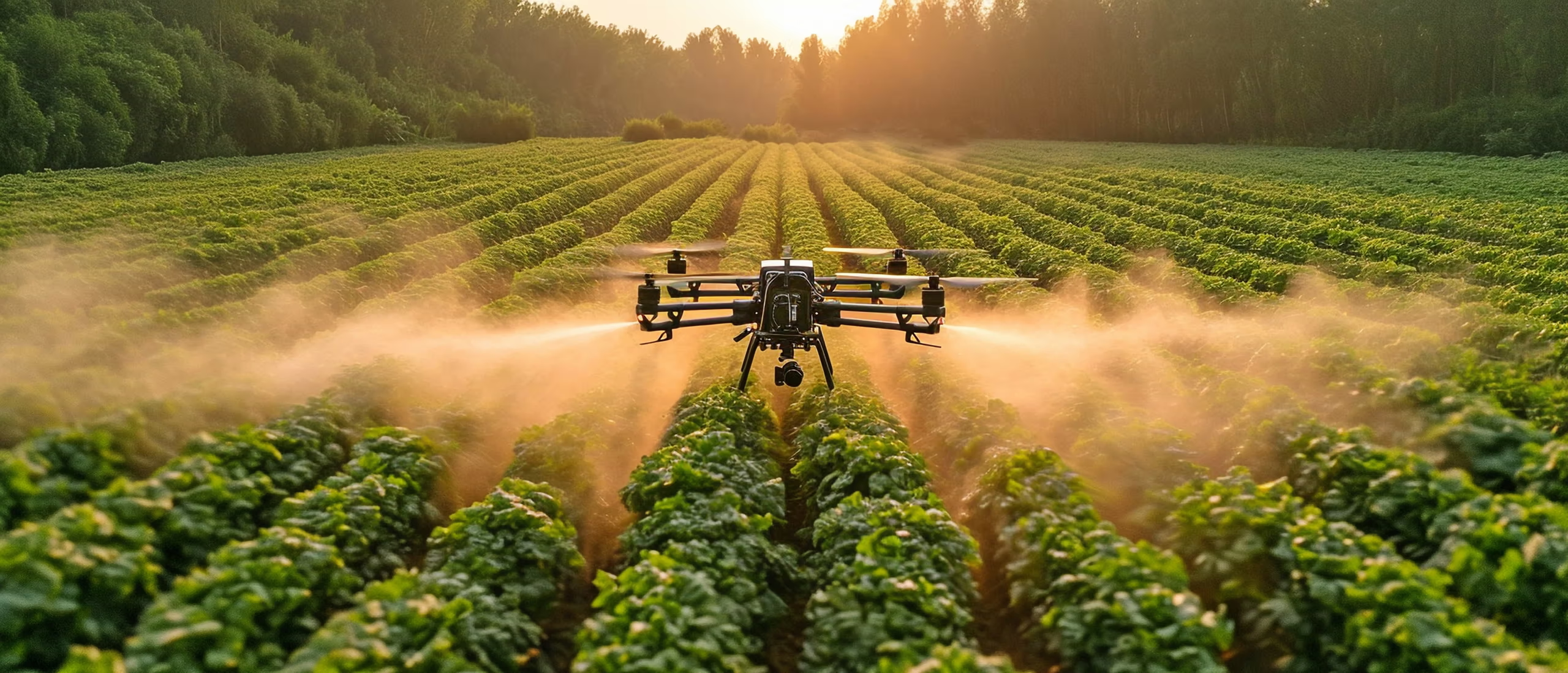
Piloting & Drone Operations
Pilot careers go far beyond airlines, spanning rescue helicopters, tourism charters, and crop spraying. Meanwhile, drone technology is evolving fast, opening doors in civil, industrial, and defence sectors.
-
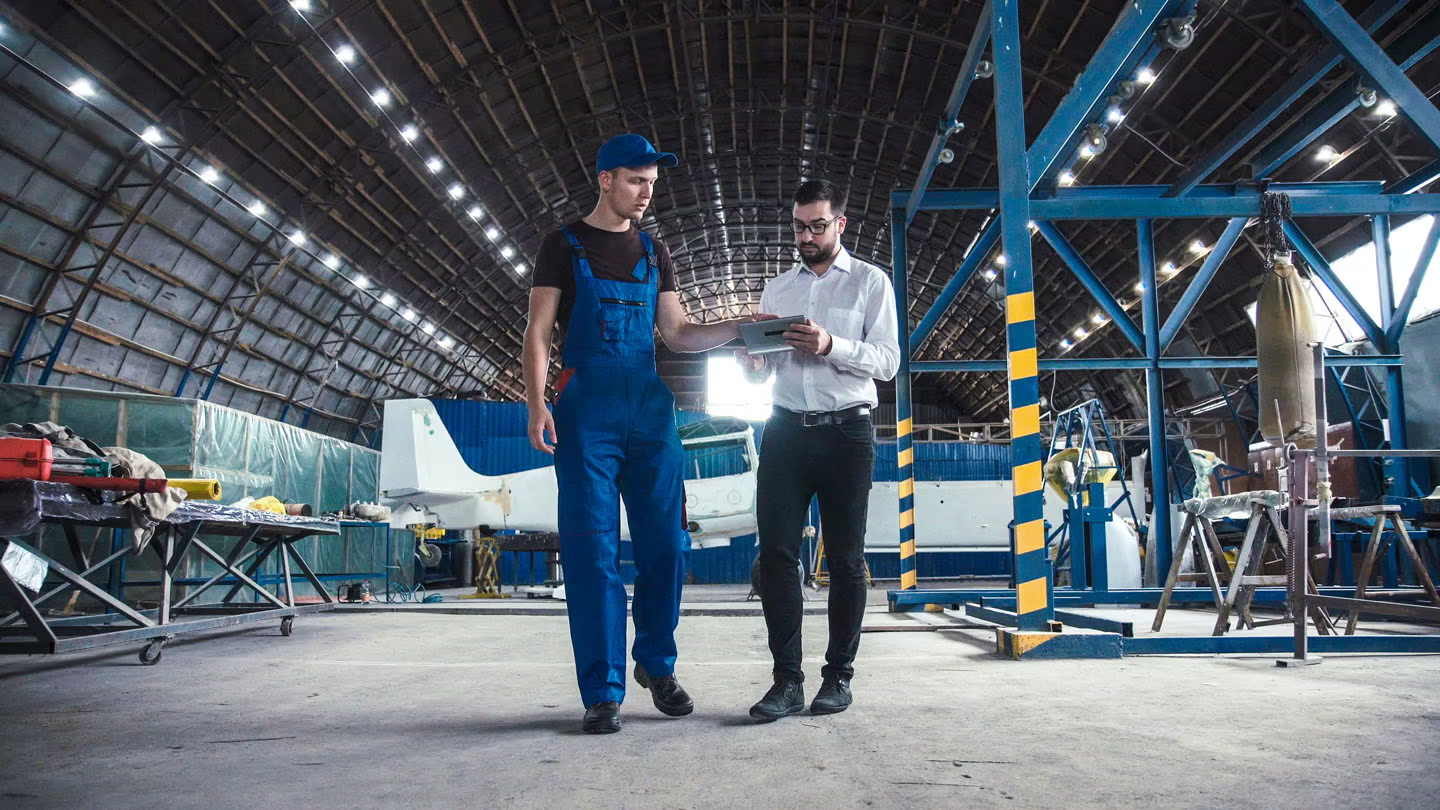
Aircraft Maintenance & Engineering
Maintain, inspect, and repair aircraft and drones to ensure safe operation. These roles require technical precision and are critical to both commercial and defence aviation.
-
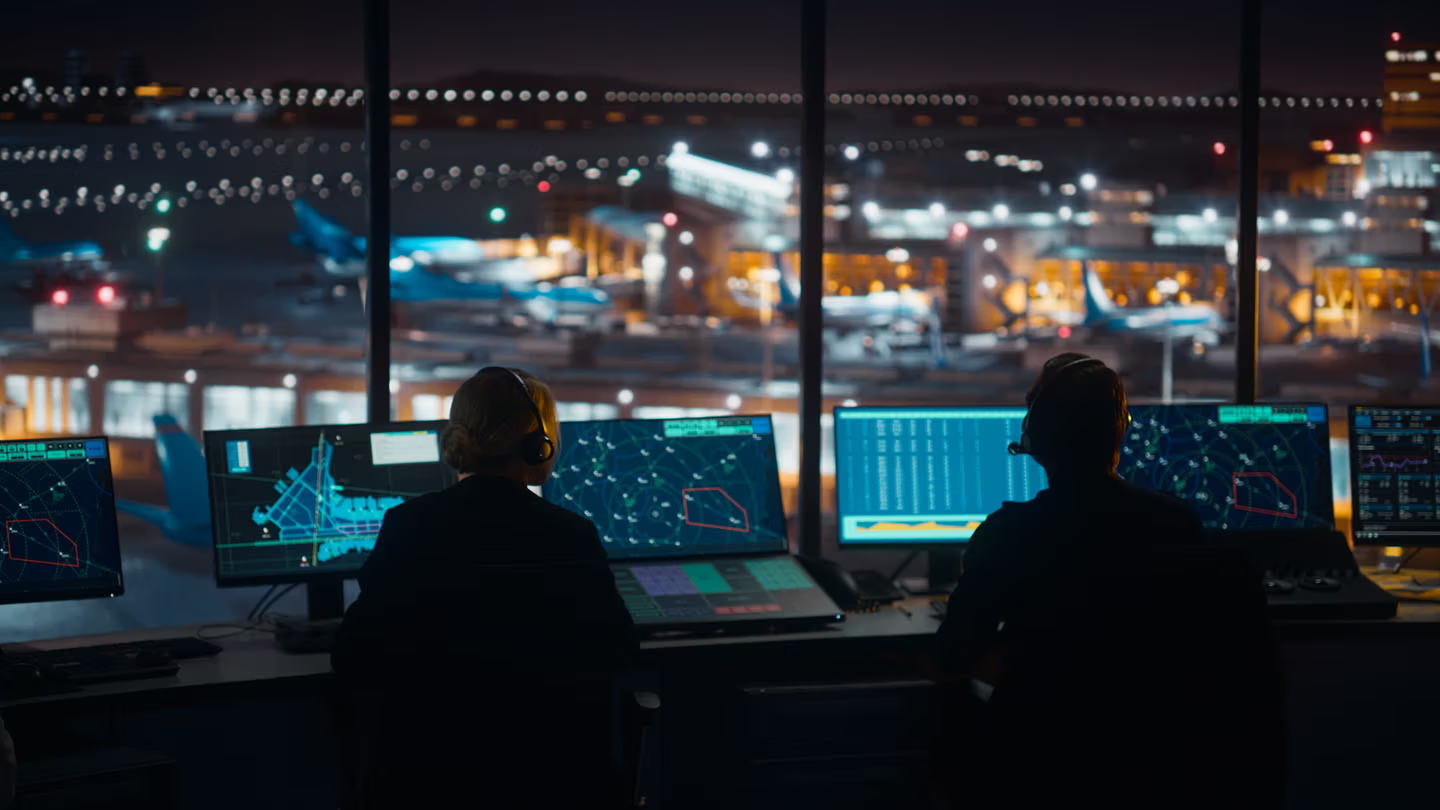
Avionics & System
Work with the complex electronic systems that power modern aircraft, including communication, navigation, radar, and flight control systems—ideal for those interested in IT, electronics, and automation.
-

Aerospace Design & Engineering
Get involved in designing, testing, and building new aviation and space technologies. This includes everything from aircraft components and jet engines to satellites and next-gen flight systems.
-
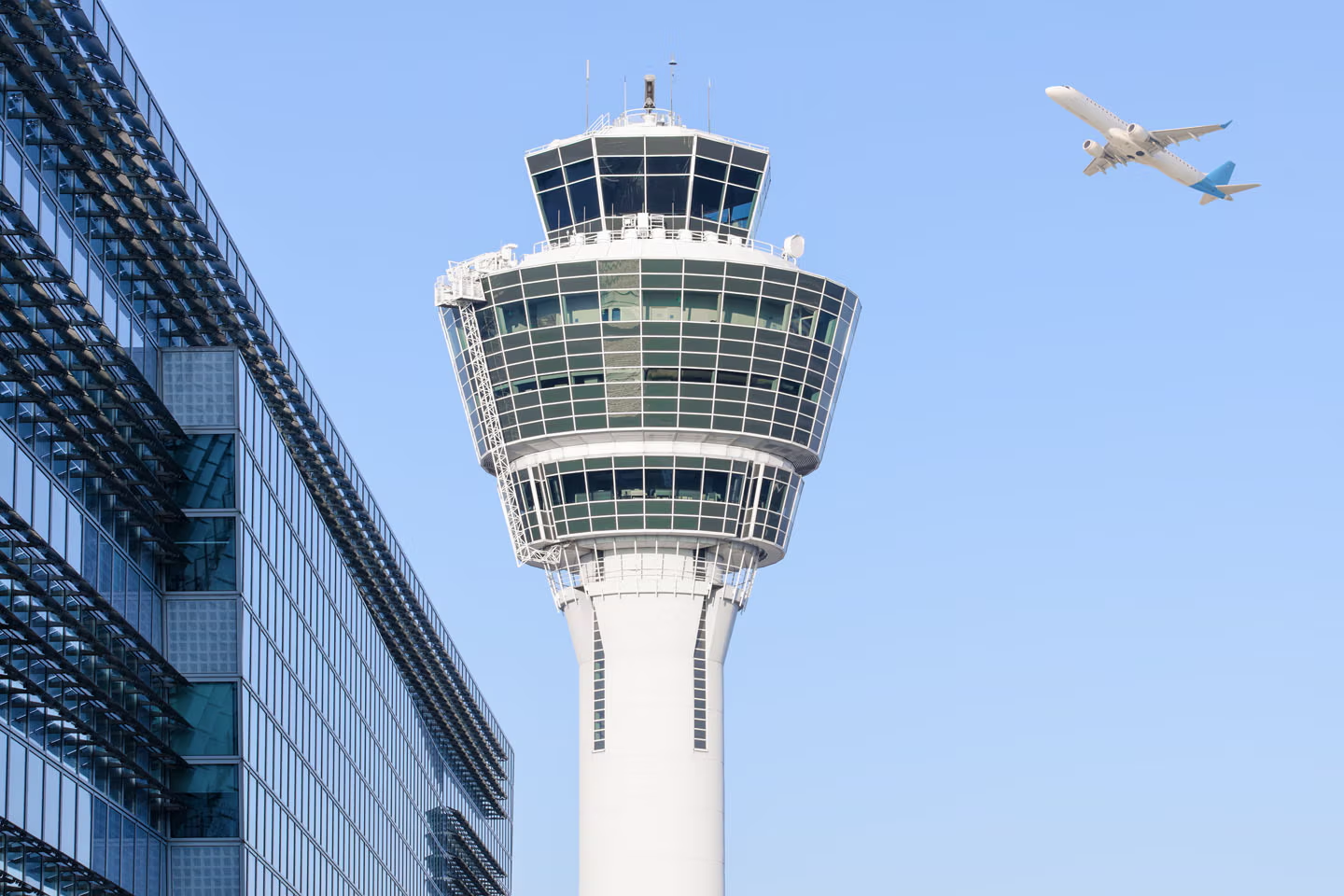
Air Transport & Airport Operations
Keep flights running smoothly with roles in logistics, baggage handling, refuelling, passenger services, air traffic coordination, and airport safety and management.
Explore what a future in
Aerospace could look like
Explore New Heights in Aerospace!
Curious about what it’s really like to work in Aerospace? Let’s take a closer look at the opportunities and how they could shape your future.
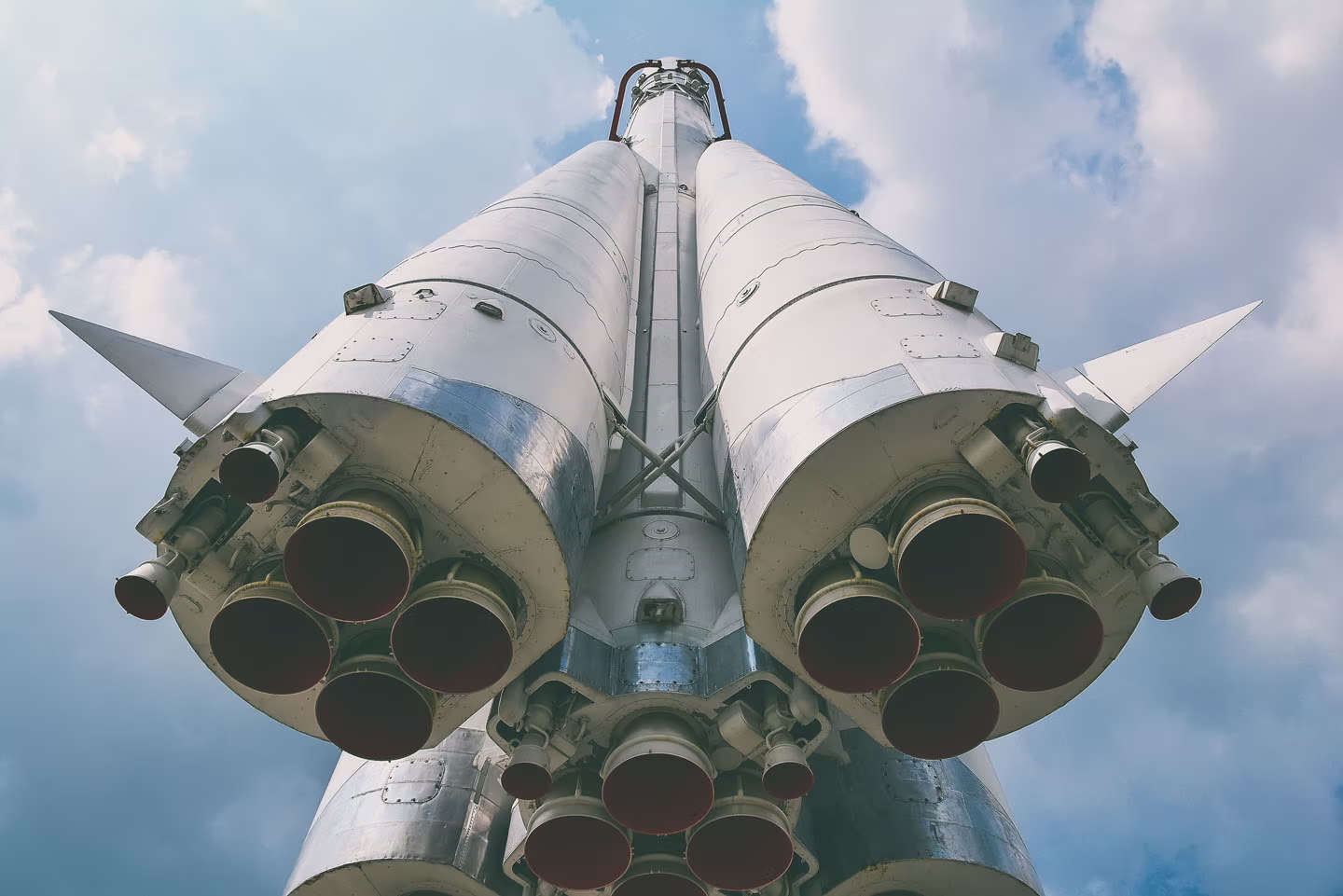
Beyond the Sky: Real Careers in Aerospace
Meet local professionals who are building exciting careers and contributing to Australia’s aerospace future. From pilots to airport operations coordinators, these locals are helping the Greater Whitsunday region take flight—showing how diverse roles and skills can lead to rewarding opportunities in this growing industry.
Find Out More About Aerospace and Potential Careers!
The aerospace industry is reaching new heights in the Greater Whitsunday region—offering a wide variety of career paths in a sector that thrives on precision, progress, and purpose. Check out these resources to see how the sector is evolving and how you can be part of it:
-
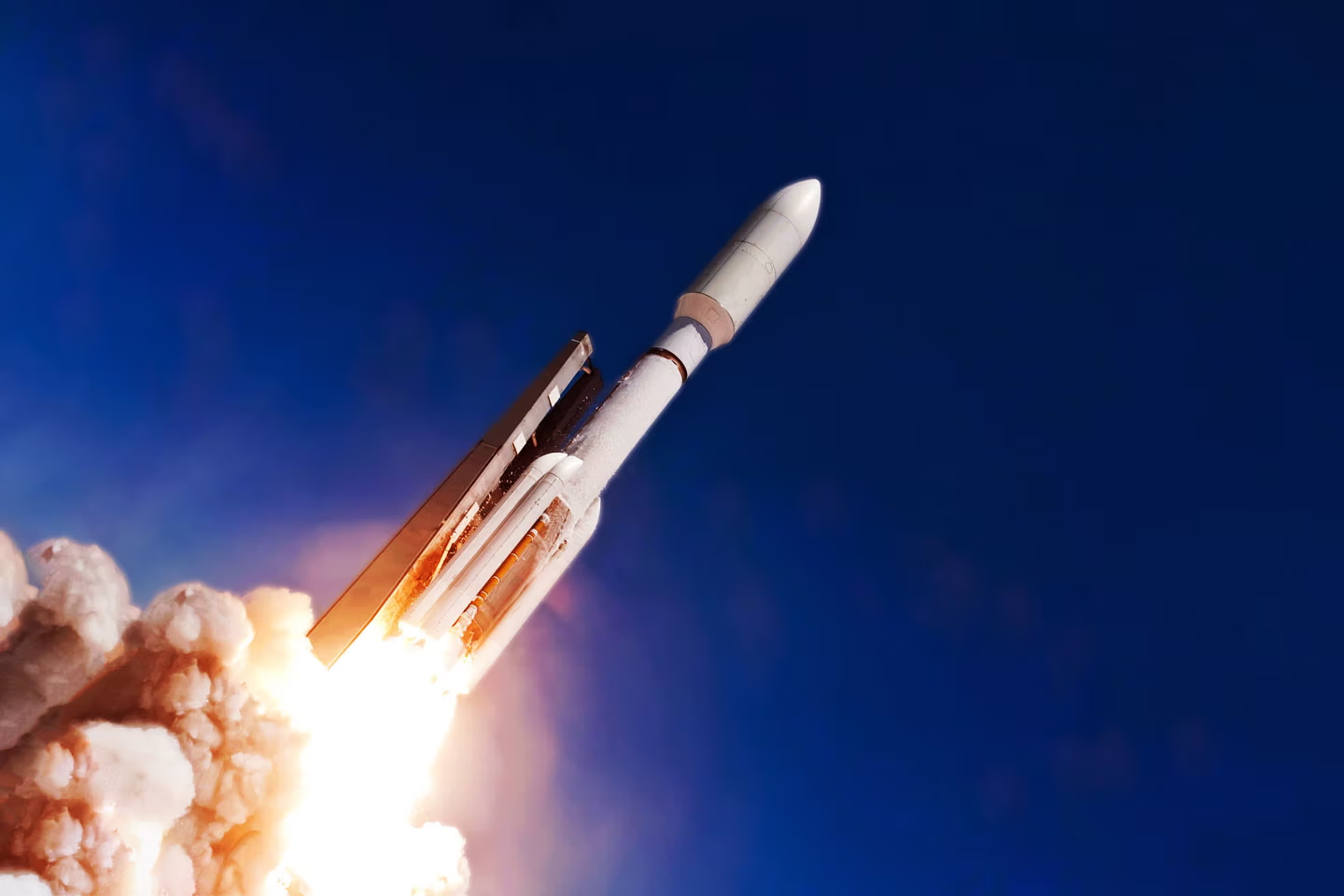
Gilmore Space Technologies
Space is now a real career option in Australia — including right here in the Greater Whitsunday region. Explore the range of roles at Gilmore Space and watch some great videos showcasing what it’s all about.
-

Careers in Space
Curious about space or driven to solve real-world problems about our planet? A career in space could be your next frontier. Find out more about different careers and study pathways.
-
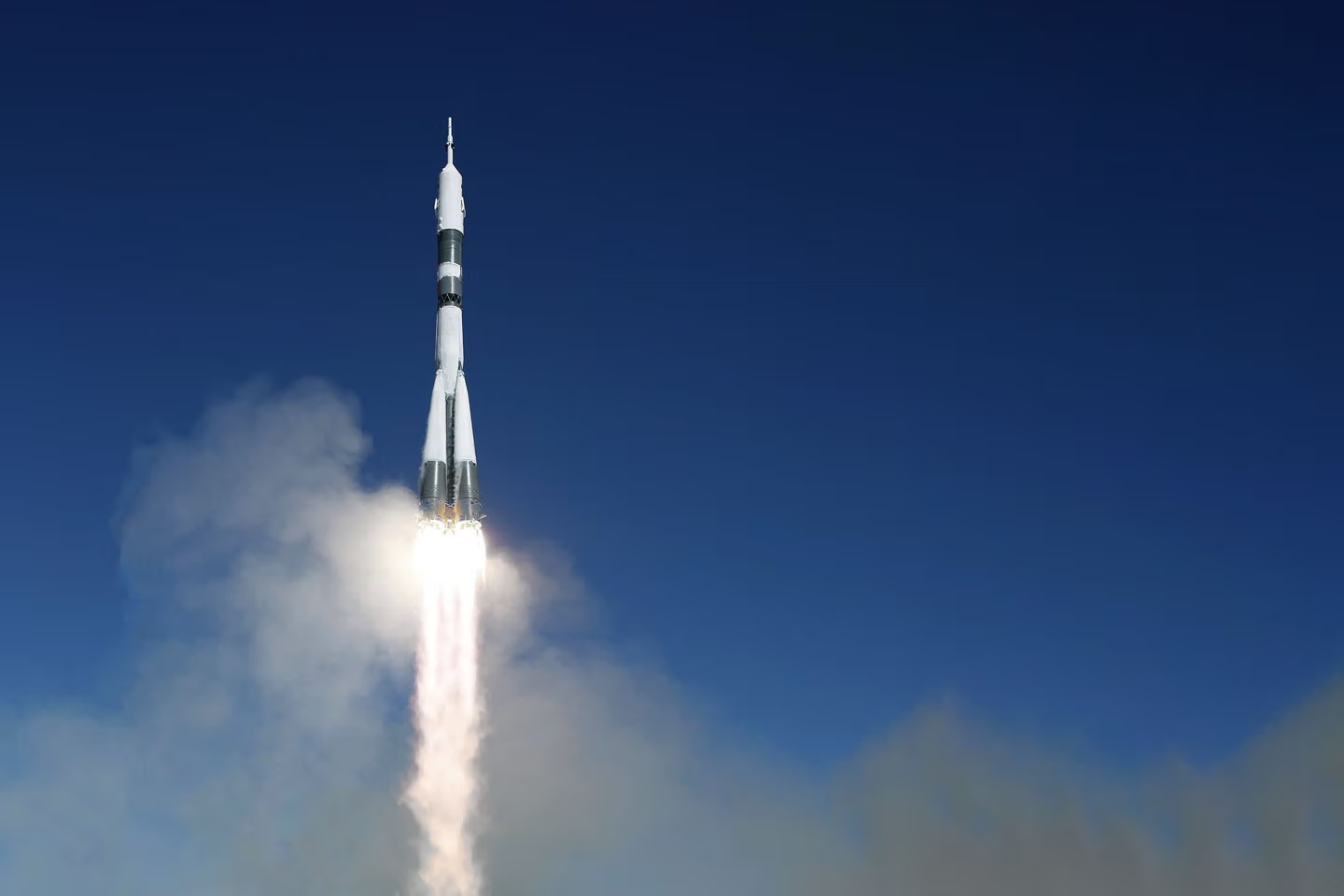
Australian Space Agency Careers
Learn more about space and careers in space with the Australian Space Agency.
-
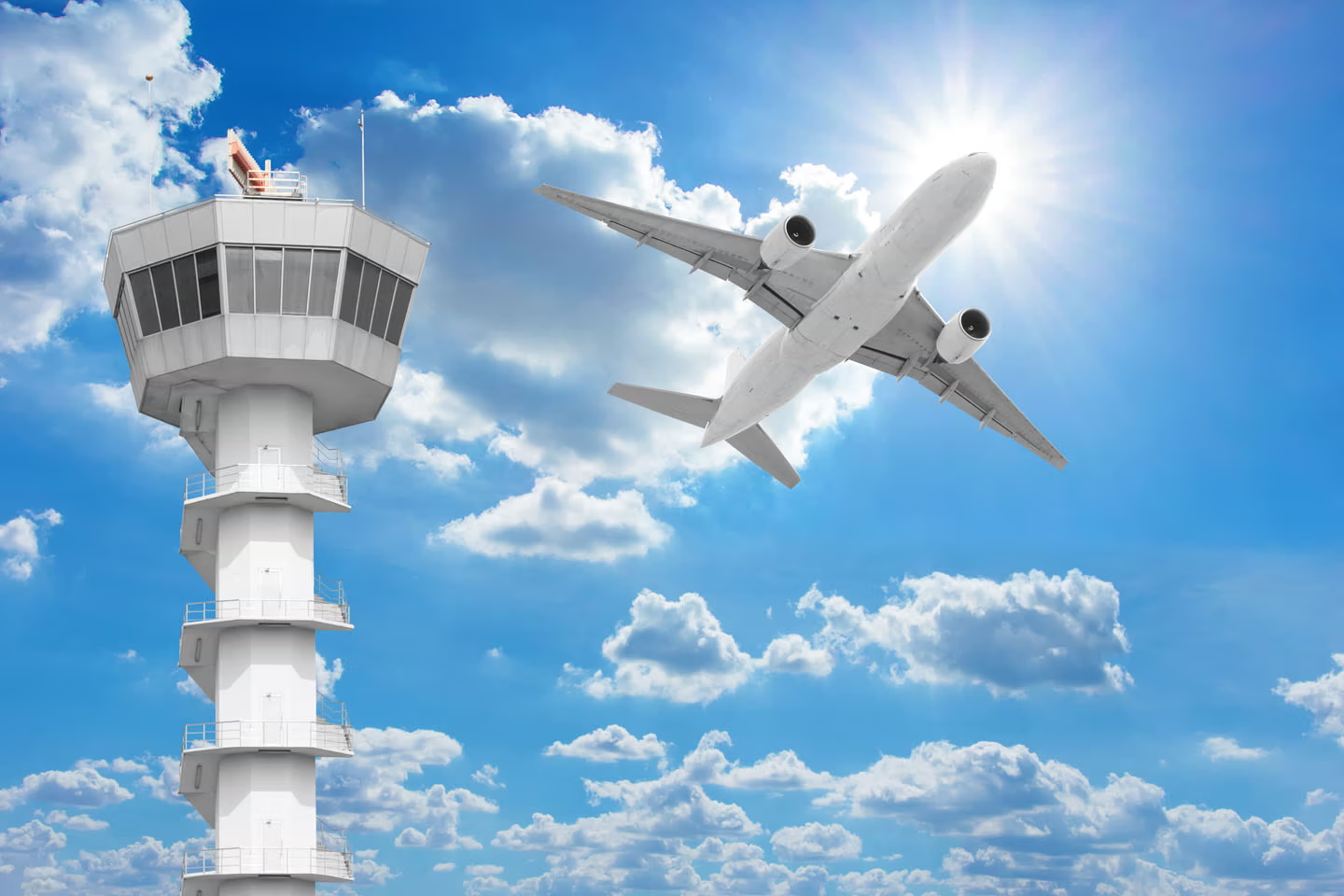
Qantas Engineering Apprenticeship Program
Explore engineering apprenticeships with major airlines, where you earn while you learn through hands-on training with expert engineers.
-
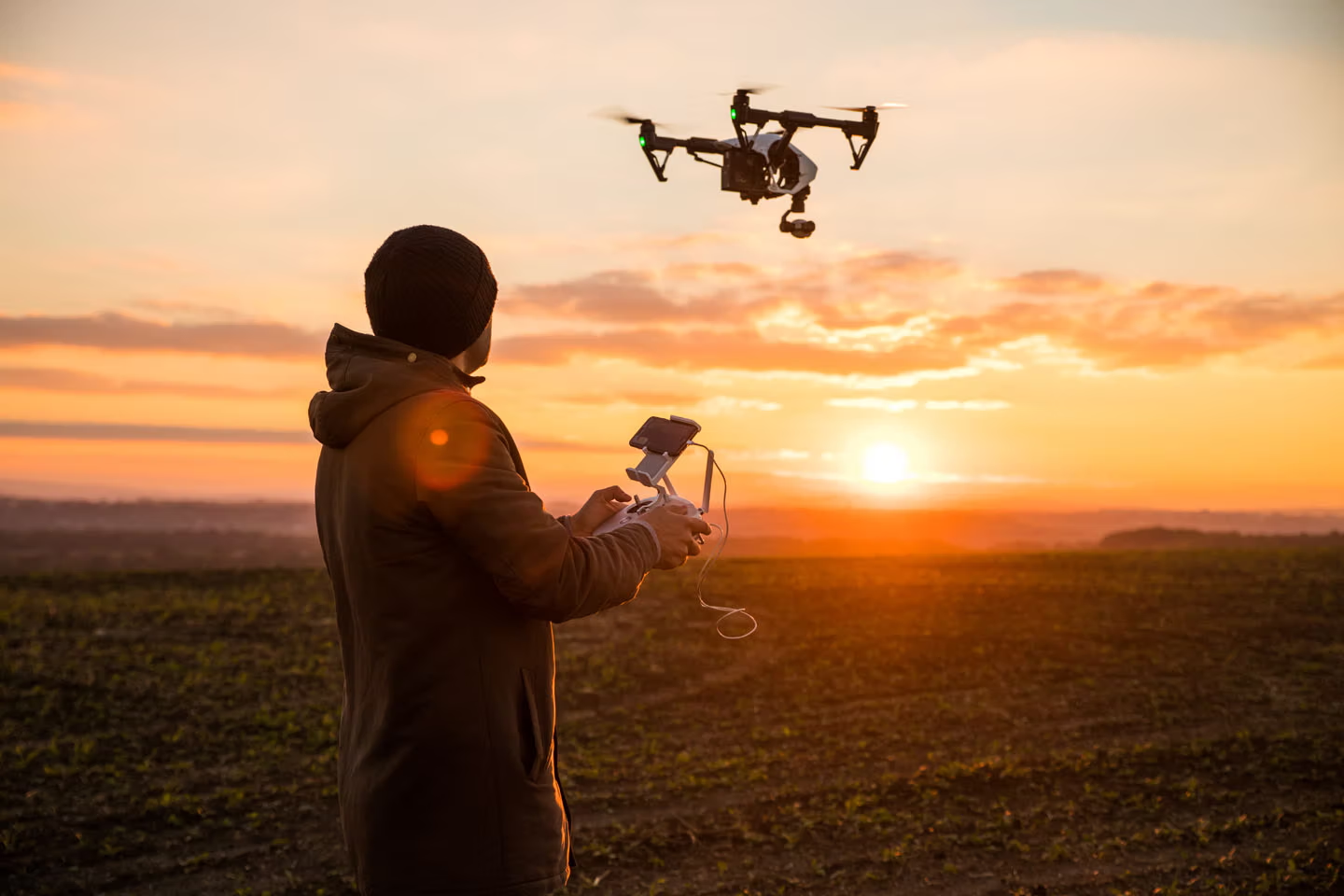
Drone Training
Kickstart your drone career with training delivered locally in Mackay and Bowen.
-

Interactive Careers Roadmap
While UK-based, this interactive map gives you a great sense of the breadth of opportunities in aerospace — from engineering to operations and everything in between.
Want to learn more about study and career pathways?
Explore regional options and find out who to contact for more information here.
Launch into a world of innovation, exploration, and impact — could you find your future in Aerospace?
Keep exploring to see where your future could take you
-
Aerospace Engineer
Design and build the aircraft and spacecraft shaping the future of flight and space exploration.
Aerospace engineering covers both aeronautical (aircraft) and astronautical (spacecraft) fields, involving the design, development, and testing of aircraft, satellites, and space systems. You’ll apply physics, maths, and engineering skills to create components like engines, wings and navigation systems, use specialised software to model and simulate designs and test prototypes in wind tunnels or labs to ensure systems meet safety and performance standards.
This role often involves collaboration with scientists, technicians, and manufacturers to solve technical challenges and deliver efficient, high-performing aerospace technologies.
In the Greater Whitsunday region, demand is growing for aerospace professionals across aviation, defence, and space.
What you might do day-to-day:
- Design and test aerospace systems and parts
- Use data and simulations to improve performance
- Help build and test aircraft in labs or outdoor sites
This role suits people who:
Are curious, logical, and passionate about space, tech, and solving problems.Pathway:
Typically, this role requires university level study in Aerospace or Aeronautical Engineering. -
Aircraft Maintenance
Keep aircraft in top flying condition by maintaining and repairing the mechanical systems that power flight.
As an Aircraft Maintenance Engineer, you’ll work on engines, flight control systems, and critical hydromechanical components. You’ll inspect, test, repair, and install aircraft systems to ensure everything functions safely and efficiently. From routine checks to complex repairs, your work keeps planes airworthy and passengers safe.
In the Greater Whitsunday region, Aircraft Maintenance Engineers are in demand to support regional airports, tourism operators, and growing aviation services. It’s a hands-on, high-responsibility role vital to the region’s transport and safety network.
What you might do day-to-day:
- Dismantle, inspect, test, and repair aircraft engines and systems
- Install and maintain electrical circuits and communication equipment
- Conduct routine pre-flight inspections of engines and mechanical systems
- Maintain records of repairs and testing
This role suits people who:
Enjoy hands-on mechanical work, are safety-conscious, and have a strong interest in aviation and engineering.Pathway:
Requires a Certificate IV in Aeroskills typically completed through an apprenticeship with further university pathways available to expand qualifications. -
Pilot
Take to the skies and guide aircraft safely through take-off, flight, and landing—whether transporting people, freight, or supporting vital aerial services.
As a Pilot, you’ll operate aeroplanes for commercial, freight, agricultural, or emergency services. You’ll prepare detailed flight plans, check weather conditions, inspect the aircraft, and communicate with air traffic control to ensure every flight runs smoothly and safely. Precision, calm decision-making, and strong situational awareness are key to success in this high-responsibility role.
In the Greater Whitsunday region, Pilots play a crucial role in connecting communities, supporting the tourism and resources sectors, and providing vital services like medical transfers and aerial surveillance.
What you might do day-to-day:
- Prepare and submit flight plans based on weather and aircraft performance
- Conduct pre-flight inspections and cockpit checks
- Operate aircraft in line with air traffic and safety procedures
- Monitor flight performance and report mechanical issues
This role suits people who:
Stay calm under pressure, enjoy solving problems, and like working with advanced technology and data.Pathway:
Requires a Commercial Pilot Licence (CPL), usually gained through a combination of flight school training and aviation theory study. -
Aerospace Systems Operator
Keep aircraft systems safe and reliable by installing, inspecting, and repairing electronic and navigational equipment.
Avionics is all about the electronic systems used in aircraft, like navigation, communication, and control systems. As an Avionics Technician, you’ll work on aircraft systems to diagnose faults, carry out routine maintenance, and upgrade avionics technology to ensure aircraft meet strict safety and performance standards. Accuracy and technical skill are essential to keep flights safe and on schedule.
In the Greater Whitsunday region, Avionics Technicians support a growing aviation industry, servicing aircraft used in tourism, industry, and community transport.
What you might do day-to-day:
- Install, inspect, and repair aircraft electronic systems
- Test and calibrate navigation and communication equipment
- Diagnose faults and perform routine maintenance
- Maintain detailed service records and compliance documentation
This role suits people who:
Are detail-oriented, enjoy technical problem-solving, and have strong hand-eye coordination.Pathway:
Requires completion of a Certificate III or IV in Aeroskills (Avionics) and relevant licensing or registration. -
Airport Operations Officer
Be at the heart of airport activity—where safety, coordination, and fast thinking keep flights moving and operations on track.
As an Airport Operations Officer, you’ll carry out inspections, manage wildlife hazards, maintain airport grounds and facilities, and ensure compliance with aviation safety regulations. You’ll also assist with emergency procedures, monitor access to secure areas, and communicate with airport stakeholders. This hands-on role is key to keeping airports safe, serviceable, and running smoothly.
In the Greater Whitsunday region, Airport Operations Officers play a vital role in supporting regional airports that connect communities, industries, and tourism.
What you might do day-to-day:
- Inspect and maintain runways, lighting, and airport facilities
- Manage wildlife hazards and maintain airport grounds
- Monitor airport access and support emergency response
- Maintain records and communicate with airport teams
This role suits people who:
Enjoy practical outdoor work, are safety-focused, and work well under pressure.Pathway:
Often requires a Certificate III or IV in Aviation (Aerodrome Operations) with on-the-job training. -
Cabin Crew
Ensure the safety and comfort of passengers while delivering exceptional service in the sky.
As Cabin Crew, you’ll manage in-flight safety procedures, perform safety demonstrations, respond to emergencies, and provide customer service by serving meals, assisting passengers, and making announcements. The role requires confidence, professionalism, and strong decision-making skills in dynamic environments.
In the Greater Whitsunday region, Cabin Crew support growing regional aviation by helping connect industry workers, local communities, and tourism to our region from major destinations across Australia.
What you might do day-to-day:
- Conduct safety checks and emergency demonstrations
- Serve food, drinks, and assist with passenger comfort
- Manage public announcements and in-flight sales
- Assist and direct passengers during emergencies
This role suits people who:
Want to travel and explore, are calm in challenging situations, and have excellent communication and teamwork skills.Pathway:
No formal qualifications are required, but VET courses in hospitality or customer service are helpful. Airlines provide extensive in-house safety and service training. -
Air Traffic Controller
Guide aircraft safely through the skies and across runways, making sure every take-off and landing is timed, coordinated, and controlled.
As an Air Traffic Controller, you’ll manage aircraft movements on the ground and in controlled airspace. You’ll give pilots clearance for taxiing, take-off, and landing, monitor radar systems, and provide critical flight information to ensure safe distances between aircraft. It’s a fast-paced, high-focus role requiring strong decision-making and communication skills.
In the Greater Whitsunday region, Air Traffic Controllers are essential to support regional airports, helping to manage growing passenger and freight services while maintaining the highest safety standards.
What you might do day-to-day:
- Direct aircraft taxiing, take-offs, and landings via radio communication
- Monitor radar and manage traffic in controlled airspace
- Provide pre-flight briefings and aeronautical information
- Respond to emergencies and changing flight conditions
This role suits people who:
Are calm under pressure, quick-thinking, and confident making decisions in real time.Pathway:
Requires training through Airservices Australia and completion of an Air Traffic Control course.
References
- Gilmour Space Technologies will Build $15 million Australian Spaceport in Bowen – Orbital Today
- Aerospace – GW3 | Greater Whitsunday Alliance
- Gilmour Space announces launch window for Australia’s first sovereign orbital rocket
- Queensland’s big aviation sector ready for a new growth era | The Australian

